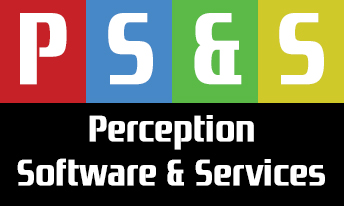
Take this imaginary test.
Employ two salespeople with similar personalities and skill-sets.
Set them a challenge to see how much advertising they can sell in one month for a special supplement you are running on widget manufacturing systems.
Give the first one a contact list of all the companies that have ever advertised with you. The list contains name, company name, phone and email. It’s a big list, much bigger than the list you give your second salesperson.
Give the second one a list of only those prospects that manufacture widgets. In addition to the basic contact information, this list also indicates whether they have advertised with you and your competitors in the past, what types of ad they have ran, when they ran them, full contact history and a hot / warm / cold rating.
Who do you think would sell more advertising? I know who my money would be on and it has nothing to do with their respective talents and everything to do with that most valuable of sales commodities, knowledge.
So, how, I ask Perception SaS’ Andy Kirk, can publishers improve their sales through improved knowledge? He had six suggestions:
1. Code up your prospects
B2B publishers have long collected detailed demographic information about their circulation, if for no other reason than having to demonstrate that they fit the ‘terms of control’ for their ABC / BPA audit.
Typically, publishers have not done the same with their advertiser and prospect lists. Often a single ‘advertiser’ flag is all that identifies them.
This lack of knowledge inevitably leads to less than optimal selling. Just think what you could do if you knew the following about each of your prospects: type of product / service, which parts of your circulation they are targeting, what adverts they have run with you / your competitors and when, what types / sizes of advert they have run.
None of this is complicated, but it requires intelligent tagging and making someone responsible for doing it on an ongoing basis, and having a CRM system with single customer view functionality to store the information. Like painting the Forth Bridge, it’s a job that never ends, but the improved sales that will come from the ability to properly segment your prospects, will cover the extra admin overhead many times over.
2. Give your sales team the information they need
Personal relationships are important, but a winning personality will only get you so far. Prospective advertisers want numbers and if your salesperson has credible figures at their fingertips to prove the quality of your audience and the effectiveness of your brand as an advertising platform, they are halfway towards closing the sale. If your response to a basic request for stats is a 48 hour delay while someone back in the office rushes around trying to pull figures together, then momentum quickly starts to flag.
Furthermore, if your product is top notch and you have the figures to prove it, then it’s much easier to keep to rate card and avoid the need for heavy discounting. If your sales, circulation and content management systems are properly integrated, then comprehensive stats should be readily available.
3. Make sure your sales support information is as up-to-date as it possibly can be
A cloud-based centralised CRM, where the full system functionality is used by the whole team is the cornerstone of a successful sales operation.
The effectiveness of CRM systems is often impaired through a combination of salespeople maintaining their own separate contact databases outside of the CRM and / or salespeople not updating the system contemporaneously. Either way, the CRM is not delivering its full potential, because it is working with incomplete information.
Whether you use a carrot or a stick, you need to make sure everyone in your sales team processes everything through the CRM.
4. Know how your sales team is performing
This is less big brother, more plain common sense. You wouldn’t employ a journalist and then never read what they write, so why would you employ a salesperson without seeing how they sell.
A fit-for-purpose CRM will give sales managers the information they need to do their job properly and get the best out of their teams. Activity levels and conversion rates for individuals and teams is useful information which will help your sales managers improve performance.
High activity levels but low conversion rates might indicate a need for extra sales or product training; low activity levels but high conversion rates might indicate a salesperson capable of selling much more; low activity levels and low conversion rates probably indicates a problem and that a conversation is needed; high activity levels and high conversion rates, and you’ve found your salesperson of the month. Ring that bell. In any event, each of these knowledge-based interventions will lead to more sales and happier salespeople taking home higher commissions.
Full transparency and proper control are particularly important during a global pandemic when your teams are working from home, and the sun is shining.
5. Know what’s been ordered
Sales can be a tough job at the best of times, so it is particularly galling when an advert is missed out of an issue, or, hold your head in your hands and weep, not invoiced.
This nightmare scenario is much more common than you’d think, especially at companies where there is no CRM system but a reliance on unconnected spreadsheets, or where the CRM system is not integrated with production or accounts.
Having a proper CRM gives you a complete picture of the ordering and production process, so you can see at a glance the status and whereabouts of all advertising.
6. Know what a good CRM system looks like
If you google ‘crm software’, you get 214,000,000 results. That’s a lot to choose from. If you’re clever and google ‘crm software for publishers’ you get it right down to, err, 2,700,000 results.
The reality is that there are lots of generic CRM systems out there, some of them at seemingly low prices. Their Achilles’ heel, says Andy, is that they are not industry specific and publishers will need to spend lots of time and money tailoring them to their needs. Installing the various add-ons and bespoke tailoring is not only costly, but you are getting into the realm of software development – not always a comfortable place for publishers to be.
A good CRM system is vital, but you need to make sure it’s fit for your purpose. A CRM designed for publishers might be more expensive up front, says Andy, but it will be ready to use out of the box and will be less expensive in the long run than generic offerings.
When considering investing in a new CRM, publishers should be clear about their goals and judge each system against them. Goals might include improved productivity, centralised information, performance tracking, greater efficiency, or all of the above.
At the end of the day, says Perception SaS’ Andy Kirk, it all boils down to one simple fact: more knowledge means more sales.

About us
Our Publisher::CRM package is the complete contact management system for publishers. Manage the full life-cycle of a sale from initial discussions right through to invoicing passing through all relevant departments on the way. Stay in control of your sales leads.
Perception SaS has been working in the publishing sector for over 25 years. With our cloud based publishing services, you can take control of your publishing business from anywhere at anytime.
Perception SaS
The Granary, Framfield Road, Buxted, Uckfield, East Sussex, TN22 4DF
Andy Kirk, Managing Partner
Tel: 01825 701 520
Email: andy@perception-sas.com











